In September, the Conrad School of Entrepreneurship and Business welcomed our next cohort of University of Waterloo PhD students to the Master of Business, Entrepreneurship and Technology (MBET) classroom through the inaugural Entrepreneurial PhD Fellowship program.
The fellowships were awarded to support outstanding, business-minded Waterloo doctoral students who are interested in commercializing their research. The following recipients will complete the three-year part-time program alongside their regular doctoral studies, tuition-free.
Sharafat Ali
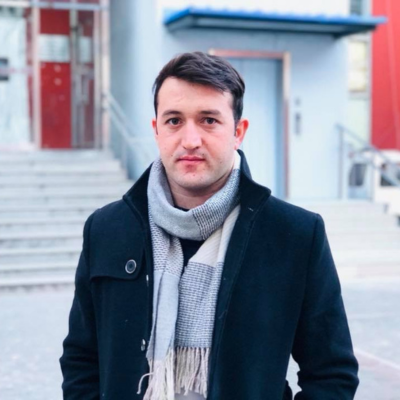
| Faculty program | Faculty of Engineering, Civil Engineering |
| Starting term of PhD | Spring 2022 |
| Supervisor | Shunde Yin, Xianche Feng |
| Research interest | Advanced membrane development for organic solvent nanofiltration, water purification and pre-combustion carbon capture. |
| Previous degree(s) |
|
Venture name, idea or focus?
Developing nano-based membrane for organic solvent purification and recycling.
Why MBET?
The MBET degree will empower me to develop the skills and mindset required to embark on a startup business. While my PhD degree in Civil and Environmental Engineering will provide me with the technical and theoretical aspects of my research, the program will help me develop my entrepreneurship skills that will have societal impact. Furthermore, the program will give me exposure to a diverse group of entrepreneurs, investors and industry leaders who come from all walks of life. It'll allow me to make meaningful connections and collaborate with the entrepreneurial ecosystem and business community.
Reza Aminghafouri

| Faculty program | Faculty of Engineering, Civil Engineering |
| Starting term of PhD | Fall 2020 |
| Supervisor | Liping Fu |
| Research interest | Traffic conflicts analysis, road safety analysis using computer vision techniques, countermeasure effectiveness evaluations, statistical and machine learning models and intelligent traffic systems. |
| Previous degree(s) |
|
Venture name, idea or focus?
Real-time road safety analytics platform.
I'm looking to develop a cutting-edge analytics platform that revolutionizes road safety analysis by integrating historical crash data with real-time sources such as traffic conflict data. Our platform will leverage advanced algorithms and artificial intelligence to provide authorities with accurate and timely insights into current road conditions and driver behaviours. By overcoming the limitations of relying solely on historical crash data, our solution enables proactive interventions to prevent road crashes, ultimately reducing the economic and social costs associated with collisions. The platform empowers decision-makers to implement targeted strategies and interventions for improved road safety, creating a comprehensive and efficient approach to mitigating the impact of road crashes.
Why MBET?
There's a dynamic and ever-changing nature of the business landscape and while I possess a solid technical foundations, I also acknowledge the need for a more comprehensive understanding of procedures and essential soft skills specific to the entrepreneurial field. The MBET program will help me as an aspiring entrepreneur to fill that personal gap. I feel like it's not only advantageous, but vital for my personal and professional growth, providing me with the essential knowledge and skills required to succeed in running my own business.
Michael Mehni
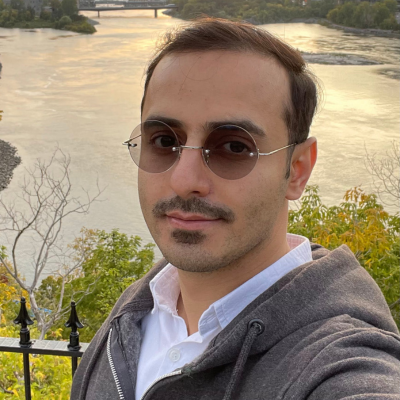
| Faculty program | Faculty of Engineering, Civil Engineering |
| Starting term of PhD | Fall 2019 |
| Supervisor | Scott Wallbridge |
| Research interest | Enhancing civil infrastructure asset management through the seamless integration of artificial intelligence, digital twin technology and data analytics. |
| Previous degree(s) |
|
Venture name, idea or focus?
Municipalities encounter the challenges of dealing with an inventory of crumbling assets while facing extensive budget deficits and climate change uncertainties. Creating digital twins of assets, utilizing condition data, and Artificial Intelligence (AI) can provide a viable solution to these challenges, transforming infrastructure asset management practices, while contributing to the broader societal goal of sustainable development.
Why MBET?
While my existing PhD project has provided me with valuable technical knowledge, I feel the need to enhance my negotiation, collaboration, team leadership and business skills. The MBET program offers a unique opportunity to develop these competencies and evaluate the business aspects of my startup idea. The MBET program will equip me with the entrepreneurial mindset, skills and networks necessary to transform my research into a practical solution and make a meaningful impact in this field.
Eugenia Dadzie

| Faculty program | Faculty of Science, Biology |
| Starting term of PhD | Winter 2023 |
| Supervisor | Trevor Charles |
| Research interest | Plastics biodegradation, bioplastics production, bacterial genome engineering. |
| Previous degree(s) |
|
Venture name, idea or focus?
Metacycler Bioinnovations
Following the implementation of regulations to control the production and use of petroleum-derived plastics, an urgency has been created for alternative sustainable materials. Current options, however, are limited in their applications. Metacycler Bioinnovations is addressing this need by using bacteria to convert food waste to polyhydroxyalkanoate (PHA) bioplastics - a fully biodegradable biopolymer with properties similar to pertroleum-derived plastics.
Why MBET?
Growing up I saw entrepreneurship modelled by my father, a passionate problem-solver with a knack for identifying gaps within the community and addressing them with unconventional solutions. This spurred my curiosity in entrepreneurship.
The MBET program is known for its world-class instructors and mentors who have been or are, entrepreneurs themselves. What I also love how the program combines theoretical and experiential learning as well as the feasibility of doing my MBET and doctoral work at the same time. It's exciting to be planted amongst like-minded students who have a passion and thirst for innovation. And crucially, this allows me to expand my network beyond biotechnology.
Piyush Garg

| Faculty program | Faculty of Science, Vision Science |
| Starting term of PhD | Fall 2021 |
| Supervisor | Lyndon Jones |
| Research interest | The key idea behind my project is that biodegradable materials can result in improved drug release kinetics, while 3D printing makes this method feasible for manufacturing custom-made lenses and on-demand fabrication. Additionally, the fabrication of contact lenses via state-of-the-art 3D printing technology also addresses problems associated with contact lens storage, expired lens waste and excessive waste. This developed technology can be used to fabricate other biomedical devices as well. |
| Previous degree(s) | Bachelors and Master's Biotechnology (dual degree), Amity University, India. |
Venture name, idea or focus?
Development of suitable drug carriers to address the bust release of ocular drugs.
Why MBET?
I anticipate that my PhD project has commercialization potential and can help redesign the landscape of ocular drug delivery including contact lenses and conjunctival inserts. I believe that I am on the right pathway for my PhD research and the MBET program will help me develop an entrepreneurial mindset and business skills alongside the pursuit of commercializing my research.
Salman Lari
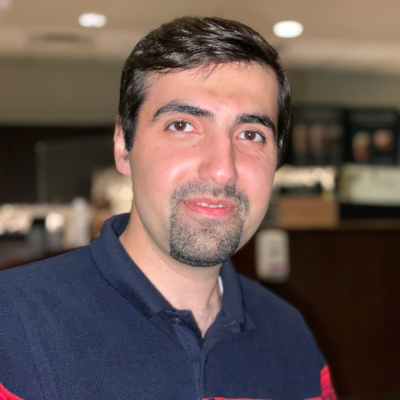
| Faculty program | Faculty of Engineering, Mechanical and Mechatronics Engineering |
| Starting term of PhD | Winter 2021 |
| Supervisor | HJ Kwon |
| Research interest | My research centres on advancing focused ultrasound therapy, exploring its applications in targeted medical interventions. I aim to enhance the precision, efficacy and safety of this non-invasive technology for therapeutic purposes. Specifically, I investigate novel techniques, mechanisms and potential clinical implementations of focused ultrasound with a focus on its role in treating various medical conditions. My overarching goal is to contribute valuable insights that can propel the field forward, ultimately optimizing patient outcomes and broadening the therapeutic scope of focused ultrasound across diverse medical disciplines. |
| Previous degree(s) |
|
Venture name, idea or focus?
ForesAlt
ForesAlt aims to commercialize cutting-edge software designed to augment surgical precision during focused ultrasound therapy. Our innovative technology provides real-time guidance and analytics, empowering surgeons to optimize treatment outcomes. By seamlessly integrating into existing systems, we enhance the accuracy and efficiency of focused ultrasound procedures. ForesAlt envisions a future where our software becomes a vital tool, elevating the standard of care in medical settings and maximizing the therapeutic potential of focused ultrasound across diverse applications.
Why MBET?
The MBET program captured my interest for a number of reasons.
Firstly, its interdisciplinary nature allows me to work alongside individuals from diverse academic backgrounds. This exposure to different perspectives allows me to broaden my horizons and enables me to tackle complex problems from multiple angles.
Secondly, it allows me to bridge the gap between academia and industry. While traditional doctoral program focus on research and publication, the MBET program emphasizes translating my research findings into practical applications and commercialization opportunities.
Finally, by integrating entrepreneurship into my doctoral journey, I'm empowered to pursue research that has direct applications and addresses pressing societal needs.
Nicole LeBlanc
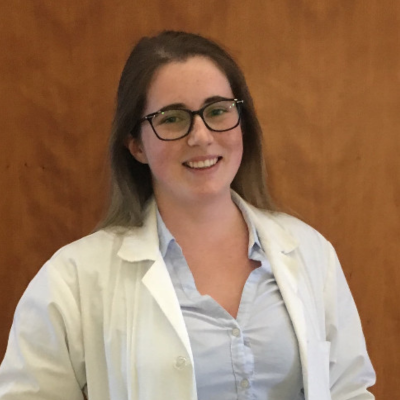
| Faculty program | Faculty of Science, Biology |
| Starting term of PhD | Winter 2022 |
| Supervisor | Trevor Charles |
| Research interest | Genome engineering of bacteria for the production of biomolecules, synthetic biology, metabolomic engineering. |
| Previous degree | Bachelor of Molecular Biology and Genetics and minor in Statistics, University of Guelph |
Venture name, idea or focus?
MetaCycler was founded by five PhD students commercializing their technology on converting dairy waste into sustainable bioplastics.
Why MBET?
I'm a scientist by training and the MBET program will enable me to get the guidance I need as I build my company. I'm excited that the program will help me learn everything about the business and entrepreneurship space. I've learned a lot figuring things out on my own, and have extensive leadership experience from various positions, however the MBET program will allow me to accelerate my own personal development and advancement of my business. Being able to take the experiential learning opportunities from the MBET program is something I'm looking forward to.
Claudia Martin Calderon
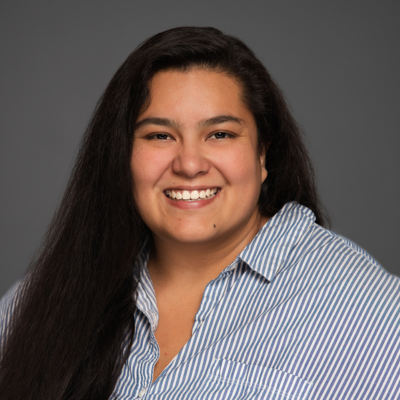
| Faculty program | Faculty of Health, Kinesiology and Health Sciences - Aeronautics |
| Starting term of PhD | Fall 2022 |
| Supervisor | Ewa Niechwiej-Szwedo |
| Research interest | Neuroscience and aerospace. Utilization of eye tracking technology and flight simulator training devices to charaterize and evaluate gaze behaviours and information processing in pilots during critical flight maneuvers and emergency scenarios. |
| Previous degree(s) |
|
Venture name, idea or focus?
Develop physiological and flight performance metrics that inform on pilot training progression and proficiency.
Why MBET?
As a PhD student we become experts in a particular niche. However, I believe the interdisciplinary nature of the program will help me open my mind to other possibilities and opportunities that I may not have considered otherwise. I also value direct mentorship and this program has world class experts to draw from.
Aosen Xiong
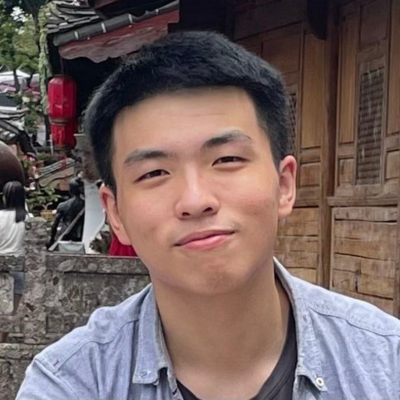
| Faculty program | Faculty of Engineering, Electrical and Computer Engineering |
| Starting term of PhD | Winter 2023 |
| Supervisor | Werner Dietl |
| Research interest | Improving software safety by identifying and preventing early development errors, utilizing advanced type systems and compiler plugins to enhance programming languages and ensure robust, reliable software applications. |
| Previous degree(s) | Bachelor of Engineering in Nuclear Engineering, Chongqing University, China. |
Venture name, idea or focus?
Software development, static analysis tool and platform development.
Why MBET?
The MBET program will help me bridge the gap between ensuring that groundbreaking technical discoveries reach beyond the sphere of academia and make a tangible difference in society. Through the program's interdisciplinary approach, I will not only be able to innovate within my research areas, but also translate these innovations into practical applications that can create substantial societal impacts.